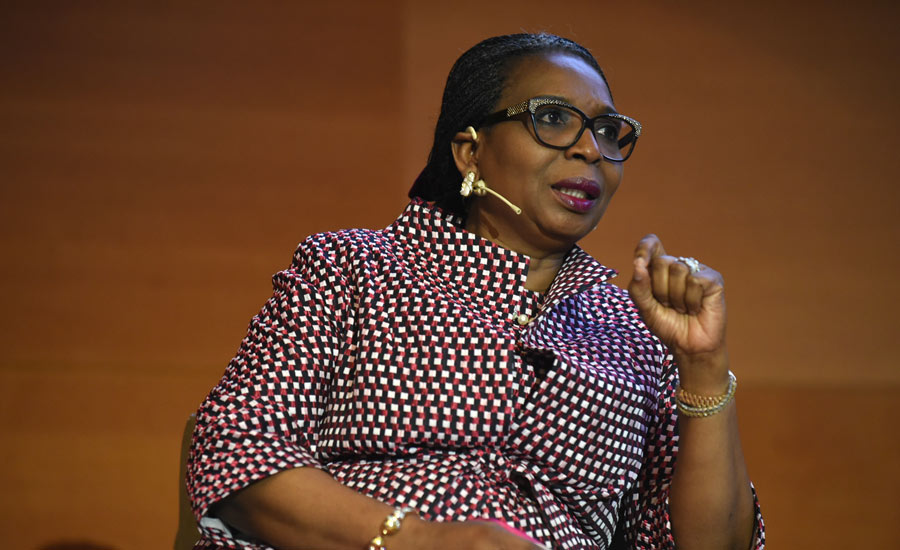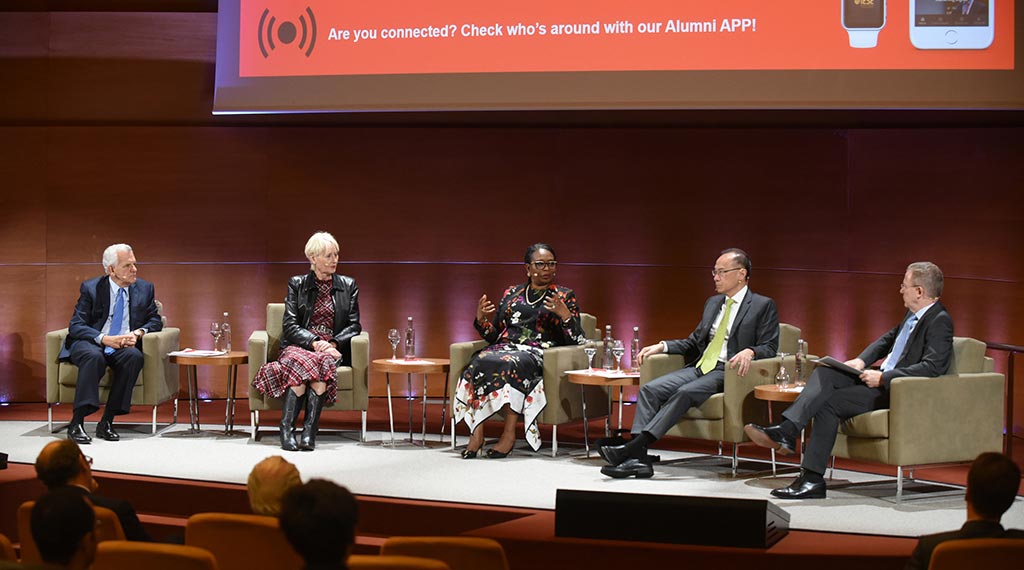Stories
Finding Purpose and Perspective in an Uncertain World
International Advisory Board encourages a long-term, value-oriented approach to management
April 21, 2017

Feeling unnerved by world events? Take the long view and embed a sense of purpose into your business.
That according to members of the schools International Advisory Board, who gathered on the Barcelona campus for their annual meeting. Composed of more than 30 business leaders from around the world, the Board offers the school its advice and expertise in its operations abroad.
Board members offered their unique perspectives at a time when, as Dean Franz Heukamp noted, there is a newfound sense of fragility in the world due to factors such as unpredictable elections in Europe, Brexit, and a new U.S. presidential administration – along with an ongoing, broader debate about what economic and social policies are best.
Africa, Latin America, Asia See Progress
Taking a wider view across the global landscape, it becomes clear that the uncertainty in developed countries such as the U.S. and Europe has had an unexpected impact on the developing world and not entirely negative.
Many African countries have understood that given the problems elsewhere, We need to solve our own problems. We’ve come to that reality, said Ibukun Awosika, founder and CEO of Nigerias The Chair Centre Group. I think Africa has gotten to the point where it realizes it has to fight for itself.
Part of that realization is becoming more than a source of raw materials for the rest of the world, and looking at issues such as how to develop its human resources and how to take advantage of the continent’s own substantial buying power. Ultimately the solutions will come from how we rethink the continent, Awosika said.
In Latin America, I also believe that the era of waiting for the U.S. to solve my problems is over, noted Stanley Motta, president of Panama’s Motta International.
He said that rather than focus on the glass half-empty, In today’s world we have to begin to have some appreciation for what’s full. And the half-full glass in Latin America would include accomplishments such as a continent generally at peace, progress toward currency stability in many countries, and a lower tolerance for corruption, he said. With the notable exception of Venezuela, many Latin American countries are advancing economically and socially.
And Asia is also somewhat removed from the angst gripping Europe and the U.S. Wherever you go in Asia, there is an air of positivism, of can-do things, said Narayana Murthy, co-founder of Infosys Technologies. While China is a major engine powering economic expansion, many other countries are enjoying export-led growth.
And in India, where exports contribute slightly less to GDP than in other Asian countries, Murthy recognized the determination of Prime Minister Narendra Modi to support the economy and businesses, especially startups; to fight corruption; and to modernize the country technologically and digitally.
For George Yeo, chairman of Kerry Logistics and a former Singaporean minister, the strength of China and the reemergence of Asia are unstoppable global currents. There is a tidal change. And that tidal change is the rise of China, he said.
Europe Source for Concern
In addition to the U.S., with its new presidential administration, Europe is a main source of concern on the global geopolitical scene, as it struggles to deal with surging nationalism, questions about the solidity of the European Union, the technological revolution and absorbing immigrants from strife-torn countries.
But it would be a mistake for Europe to take a short-sighted view and retreat from trade, allowing the current wave of protectionism to make countries more insular, said Hans-Jacob Bonnier, deputy chief executive officer of Swedish media group Bonnier Business Press. Doing so will undermine economic prosperity now and in the future. Trade is the mother of wealth, he said.
Franz Haniel of Germany’s Haniel group said that he views with dismay the focus on the short-term among politicians as well as investors and worries about the sort of decisions that short-term vision will engender. He said his company is encouraging leaders to think across generations, to have a long-term vision and to view the future not only through a technological lens. Think about moral evolution. Think about values, he said.
Vision and Engagement Needed
And business opportunities abound around the globe as long as investors and companies take a long-term view, understand how markets differ, and become engaged in the development of the countries where they operate. That sort of attitude can also lead to investment opportunities that might otherwise be overlooked, whether it’s education in Africa or airlines in Latin America.
You cannot isolate your business from society, from education aspects, from the geopolitical, said Janina Kugel, a member of the managing board at Siemens. For a company like Siemens, with operations in many developing countries, that has meant investing heavily in education and training of its workers which benefits both the company and the countries long-term.
Hans Ulrich Maerki, a member of the board of Mettler-Toledo International, also stressed the long-term, wherever you do business. You need to have a vision and a business vision by definition has to be long-term, he said. That vision must be turned into a strategy, which incorporates different scenarios because things don’t always go as planned. A good compensation system is also essential, he said.
And for Paul Polman, CEO of Unilever, the focus on short-term gains threatens not only companies, which have a shorter and shorter life span, but also the wellbeing of society and the planet.
Unilever has taken a number of measures to focus on the long term, even when those have temporarily displeased financial markets or short-term investors. All Unilever brands have a mission, in order to solve some sort of social issue, and Polman has put sustainable growth at the center of his corporate strategy.
Bring into your business a purpose-driven model, he said. My philosophy is very simple. If you want to be in business you should have a reason to be in business.

